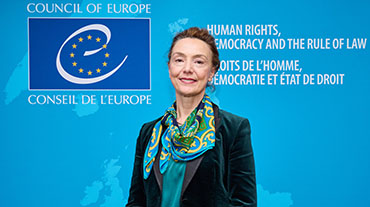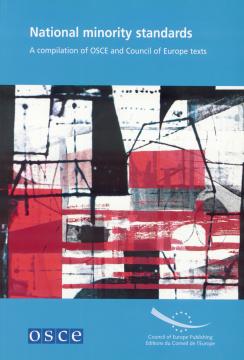Collection of Council of Europe and OSCE national minority standards
Foreword
In 2023, the Council of Europe will attain two important milestones: the 25th anniversary of the entry into force of its two key legal instruments pertaining to national minorities, the Framework Convention for the Protection of National Minorities and the European Charter for Regional or Minority Languages. The High Commissioner on National Minorities of the Organization for Security and Co-operation in Europe (OSCE HCNM) will mark the 30th anniversary of the opening of the High Commissioners’ office in The Hague.
To mark these achievements, it is a great pleasure to present to you this compilation of texts on national minority standards from the Council of Europe and the OSCE High Commissioner on National Minorities. It presents key documents in several languages, thereby creating an invaluable resource for those working on issues related to national minorities. The joint webpage also illustrates the long-standing and strong co-operation between, and complementarity of, our two institutions.
The Council of Europe, established in 1949, is the first international organisation founded to foster co-operation between European democracies in order to promote and safeguard democracy, human rights and the rule of law. This aim is central to a vision of Europe based on peace, stability and justice. Promoting cultural diversity and ensuring equal and lasting protection to national minorities are an integral part of the realisation of this vision. The Council of Europe carries out its mission as regards national minorities through the standards enshrined in the Framework Convention and the Language Charter, monitoring of states parties’ compliance with these standards, and co-operation activities supporting national authorities in applying them. It also continues intergovernmental co-operation to develop relevant policy instruments.
Originating in the Conference on Security and Co-operation in Europe and the Helsinki Final Act of 1975, the OSCE promotes stability, peace and democracy through a comprehensive concept of security that covers the politico-military; the economic and environmental; and the human dimensions. To address national minority issues through these three dimensions, the position of the OSCE High Commissioner on National Minorities was established to be an instrument of conflict prevention at the earliest possible stage in regard to tensions involving national minority issues. The HCNM fulfils its mandate by providing analysis and policy guidance, including through its thematic Recommendations and Guidelines.
The Council of Europe and the OSCE HCNM fulfil their responsibilities towards national minorities using different tools that serve the same goal. In the current challenging geopolitical context, developing closer ties between our two institutions has become even more important than ever before.
As we have learnt over the last decades, setting standards and guidelines is only one important aspect in the protection of human rights; efficient implementation of these standards and monitoring adherence to them is imperative to ensure that they serve the purpose for which they were established and by doing so contribute to social cohesion, to build resilient societies and maintain peace. We hope that this joint online collection of resources will serve to remind and inform our readers, including members of the public and representatives of civil society and government authorities, about our unwavering commitment to serve and protect the interests of national minorities throughout Europe for the years to come.

Marija Pejčinović Burić,
Secretary General of the Council of Europe

Kairat Abdrakhmanov,
OSCE High Commissioner on National Minorities



